I’m back at Strange Horizons with a new review. The Liquid Land by Raphaela Edelbauer (translated from German by Jen Calleja) concerns a woman who goes in search of her parents’ birthplace and finds a quaint little town in its own bubble of reality – with a giant hole in the middle, where the secrets of the past can be conveniently lost. Eddelbauer’s novel is a striking metaphorical exploration of how people may seek to ignore the past, and how it may catch up with them. Published by Scribe UK.
Category: Fiction
Melville House: My Weil by Lars Iyer
Up to now, I’ve been reluctant to try Lars Iyer’s novels, because I don’t know that much about philosophy. With a new one published, it was time to have a go. I mention this up front o you know where I’m coming from in what follows. This is how I read My Weil…
Welcome to Manchester, as created through the thoughts and voices of a group of PhD students at All Saints University’s Centre for Disaster Studies. There is something uniquely authentic about this group, at least as far as they’re concerned. They see the PhD as the highest, purest form of study, “a passion of studious solitude”.
In this, they contrast themselves with the PhD students from the neighbouring red-brick institution, who have never known what it is to struggle to write. They’re far removed from All Saints’ homogenous undergraduate population (“Student-drones, preparing for the world of non-work. Student dullards, being processed for a society of busy nullity.”) And these humanities PhD students are the very antithesis of – shudder –Business Studies PhD students (“Where’s their doom? Where’s their crushedness? Their disease of the soul? There doesn’t seem to be anything wrong with them.“)
Throughout My Weil, our group rails against the decline of academia into endless seminars on professional skills. They make a film to highlight the futility of making art in the present day. They induct hapless “Business Studies Guy” into the ways of real study, pursued for its own sake even if it might never reach a conclusion.
The swirl of voices surrounding the reader makes the tone of Iyer’s novel shift from humour to despair to yearning, and back again. Our group of students may think their concerns are more substantial than most, but there’s a level of weight even beyond them. Into their number comes one Simone Weil, who essentially has the same outlook as the philosopher Weil. Her greater engagement with the possibility of God challenges the PhD students’ view of the world. Perhaps the most deeply affected is Johnny, who sees in Simone’s level of conviction something he wants to reach for. Pockets of solemnity burst from the throng of conversation, rising to an end that has a texture all of its own.
Published by Melville House.
Fly on the Wall Press: The State of Us by Charlie Hill
Here’s a very enjoyable story collection by Birmingham author Charlie Hill. There are tales of many shapes and sizes, but what I think of as Hill’s typical approach is abstracting and distilling a situation to a sharp point.
The opening story, ‘Work’, is a good example of what I mean. In the ruins left behind after unspecified “detonations”, we meet two workers: Burt, who moves things, and Bill, who counts things. Burt would like to count things, as he tells Bill; but Bill questions his thought process. The banter between the two may raise a wry smile, but it’s ultimately chilling to see the whole of work – the whole of life – reduced down in this way. As Burt puts it: “…there is no besides, is there? […] There’s no besides at all. Look around you. Look at it. There’s this. That’s all there is. This.”
Elsewhere in the book, ‘The Tale of Big Hal and the Bethany Tower’ gives larger-than-life dimensions to a story of competitive suburban parenting. The longest story, ‘On the International Space Station’, sees a lone astronaut giving updates to a mission control that they hope is still on Earth, and reflecting on the nature of ‘progress’. ‘Holidaying in the Maldives’ is a shorter piece whose text is increasingly greyed-out in patches to illustrate the tale being lost amid rising seas.
This collection mostly takes a dark view of ‘the state of us’, but there is also a certain pragmatic optimism. The title story imagines specks of matter from people around the world carried to Birmingham in the wake of World War Two aircraft, then later generations making their way there: “And they found in Birmingham a city not just of a secure and diverting past but a city of a human and uncertain future, a city that was ugly, glorious, troubled, beautiful, a city that was of this earth and of this world, a city that was home…”
This, then, may be the state of us: good and bad at the same time, precarious but here.
Published by Fly on the Wall Press.
In the Belly of the Queen by Karosh Taha (tr. Grashina Gabelmann): Women in Translation Month
In the Belly of the Queen is published as two novellas back-to-back, each set amongst the same group of characters in a Kurdish community in Germany. In my reading of the book, the two novellas don’t fit into the same chronology – but I have to sound a note of caution here, because I haven’t found another review online that thinks the same. If I’m wrong in what follows, so be it – I can only write about the book that I read.
In each novella, the narrator is close to the character Younes. Raffiq (whose story I read first) can’t help thinking about Younes’s beautiful mother Shahira, who doesn’t conform to the community’s expectations – for example, she sleeps around and wears revealing clothes. The attention is too much for Younes, who goes to find his father in Frankfurt. Raffiq’s girlfriend Amal plans to go to America, and his father wants the family to leave for Kurdistan, where he’d be qualified to practise as an architect once again. Raffiq wants to stay in Germany, and has to decide where his loyalties lie.
The other story is Amal’s, but here she is no friend of Raffiq. Like Shahira, this Amal doesn’t abide by societal expectations, albeit in a different way: from an early age, she was nicknamed “Mowgli-girl” for cutting her hair short and beating up Younes (they would become closer later on). In this account, Amal’s father is an architect who went back to Kurdistan; she follows him, but doesn’t find quite what she expected.
By structuring her novel in this way, Taha effectively puts Raffiq and Amal in the same position in their respective stories, then explores the different ramifications for each. There’s also the character of Shahira, who looms large in both stories but never speaks to us herself (I have to acknowledge that the author’s essay in the book pointed me towards this). In a sense, she exists beyond the narrative in the same way that she exists beyond community norms. The full effect of Taha’s novel lies in the interplay and contrast between its two halves.
Published by V&Q Books.
Peirene Press: The Love of Singular Men by Victor Heringer (tr. James Young)
Reading this novel is an experience tinged with sadness from the start, knowing that its author died in 2018, shortly before his thirtieth birthday. One can’t help wondering what else Victor Heringer might have written, but it’s great that we have such a striking book as The Love of Singular Men from him, in a wonderfully fluid translation by James Young.
Our narrator is Camilo, who grows up in a suburb of Rio de Janeiro in the 1970s. Though he has a condition affecting his mobility, his middle-class upbringing means Camilo’s life is largely untroubled by the wider world. One day, Camilo’s father brings a young boy named Cosme to the house and announces that he is to join the family. Camilo hates Cosme at first, but in time that emotion will blossom into love.
Camilo narrates his story as a middle-aged man looking back. We learn there has been tragedy, and that Camilo struggles to hold on to his memories:
My Cosme has been losing his features over time. I no longer remember clearly what his face was like, just a few broad lines, a few pieces reheated a million times in the imagination: his face when he tasted unsweetened lemonade, the grimace of the first time. A tired smile at the end of a kickabout. […] I’ve recalled these memories so many times that now what I see is no longer my friend’s face of flesh and cartilage, but a worn-out image, buried under fourteen thousand re-rememberings.
Translation from Portuguese by James Young
The past very much lives on in the present for Camilo, and he may be ready to take action now in order to resolve what happened then. Heringer’s novel takes in themes of violence, poverty and marginalisation. You never know quite where this book will turn next, but it’s always fascinating to see.
Published by Peirene Press.
Prototype Publishing: Lori & Joe by Amy Arnold
It’s on a day like any other – or maybe like none at all – that Lori finds her partner Joe dead in their Lake District home. She doesn’t see the point in calling for an ambulance, and goes out for a walk instead. Over the course of that day, Lori thinks back on her life with Joe, and we see how out of place she felt when she moved to the Lake District, and how much she would dwell on their neighbours’ large family.
Arnold portrays Lori’s thoughts as constantly shifting and looping back on themselves. This creates a restlessness that animates the novel, and also allows Lori to deflect thoughts that she may prefer not to have. It’s striking that, when she registers that Joe is dead, her attention turns swiftly to the coffee she’s carrying and the state of the carpet.
For a taste of Arnold’s approach in action, here is Lori when emotion catches up with her:
And she thinks, not tears now and she feels them pushing inside her head and she thinks, all day they’ve been threatening, ever since she stopped on the bridleway and looked up at the sky. White from end to end, yes, that’s how it was this morning, Lori thinks, and it’s been nothing but rain all month, one rain after another rain, there’s hardly been time to breathe between them and she looks across the rough ground and she feels the tears pushing inside and she thinks, there can’t be another landscape that takes the rains like this one, that absorbs violence after violence and in summer gives flowers that wear veins in their petals. Bog pimpernel, Lori thinks, skylarks, cottongrass.
What I like about this is the way Lori tries to push her feelings into the external environment: when tears come, she focuses on rain. In turn, this gives an extra dimension to the comment about landscapes absorbing “violence after violence”, as one starts to wonder what Lori might really mean. There are quiet revelations here, quiet because Lori would rather not voice them out loud.
Published by Prototype.
This book has been shortlisted for the 2023 Goldsmiths Prize. Click here to read my other reviews of the shortlist.
Gentleman Overboard by Herbert Clyde Lewis
Earlier this year, I read Appius and Virginia by Gertrude Trevelyan, which had found its way back into print thanks to Brad Bigelow from the Neglected Books Page. Brad also has an ongoing series with Boiler House Press, Recovered Books, which aims to bring back more ‘forgotten’ titles.
The first entry in the Recovered Books series was Gentleman Overboard, a short novel originally published in 1937 and written by an American journalist, Herbert Clyde Lewis (1909-50). Lewis introduces us to Henry Preston Standish: a 35-year-old New York businessman, materially comfortable but with a nagging feeling that something is missing in his life.
Standish leaves behind his wife and young daughter to take a trip on a steamship. He’s on deck early one morning when, unseen, he slips on a spot of grease and falls into the Pacific. In this situation, Lewis puts Standish and his sense of self under the microscope. Standish’s immediate emotion on falling overboard is shame, because this is not the sort of thing that should happen to someone like him:
Men of Henry Preston Standish’s class did not go around falling off ships in the middle of the ocean; it just was not done, that was all. it was a stupid, childish, unmannerly thing to do, and if there had been anybody’s pardon to beg, Standish would have begged it.
At first, Standish’s sense of decorum remains, but the reality of his predicament eventually hits home. He starts removing his outer clothes to stay afloat, and abandoning the contents of his wallet. The layers of his genteel life are literally stripped away.
Lewis combines contradictory tones in a way I found quite powerful: Gentleman Overboard is both comic and tragic, banal and affecting. For example here’s a passage where Standish reflects on what might be lost if he were to drown:
There would be voids everywhere through no fault of his. A void in the elevator boy’s pocket next Christmas, a void in the telephone book, a void on the office stationery…New York City would be dotted with spaces that could never be filled by anyone but the real Henry Preston Standish; his locker at the Athletic Club, the hollow in his bed, the interior of his dinner jacket, to mention just a few.
There is something absurd in the small scope of what Standish describes here. But when I think about it, it seems to me that this captures something of what life is like. Yes, in the broader picture, one human life may be insignificant; but on an individual scale, even the smallest things can carry meaning. Lewis holds these contradictions in a finely balanced tension.
Six Degrees of Separation: Time Shelter
Well, I haven’t done this for a while… nine years, in fact!
Six Degrees of Separation is hosted by Kate of Books Are My Favourite and Best, and takes place on the first Saturday of every month. Everyone starts with the same book, and puts together their own chain of six more.
The starting book for July is the winner of this year’s International Booker Prize, and one of my favourites that I’ve read so far in 2023:
Time Shelter by Georgi Gospodinov (tr. Angela Rodel). The time shelter is a clinic that re-creates different periods of the 20th century, an immersive environment intended to jog its patients’ memories. Which reminds me of another novel involving elaborate re-creations of the past…
Remainder by Tom McCarthy. The protagonist of Remainder has had an accident that leaves him conscious of every little difficult movement. He spends his settlement money paying people to re-create his past environments, in the hope that he might capture the experience of living as he did then. There are also characters searching for authentic experience in…
Plume by Will Wiles. This novel concerns a lifestyle journalist who gets an interview with a reclusive cult writer, one who appears to have extraordinary insight into the social forces that underpin life in the city – into what makes it real. One of the recurring images is a cockatoo, and another novel in which birds feature prominently is…
Bird Cottage by Eva Meijer (tr. Antoinette Fawcett). This novel is based on the life of Gwendolen (Len) Howard, who conducts in-depth study of the birds near her Sussex home, though her work is rejected by the scientific establishment of the time. Len’s passion for studying birds is all-consuming, which brings me to another book about a deep interest…
Brian by Jeremy Cooper. Here, the main character’s interest is cinema, and he becomes a regular at the BFI, where the world of film opens up and enriches him. There are a lot of films mentioned in this book that I haven’t seen, but that didn’t stop me enjoying the book one bit, because it was so deeply felt. I had a similar reaction to…
The Wandering Pine by Per Olov Enquist (tr. Deborah Bragan-Turner). An autobiographical novel by a writer I didn’t know of beforehand. There was no reason for me to have any great expectations, but I just loved it. I would go so far as to say that The Wandering Pine has one of the most vivid depictions of childhood that I’ve read. I’ll finish this chain with another book about a life lived through most of the 20th century…
Homelands by Chitra Ramaswamy. An account of the friendship between the author and Henry Wuga, who fled Nazi Germany with his wife Ingrid. As Ramaswamy puts it, she and Henry might seem unlikely friends, “a middle-aged Indian woman [and] a white nonagenarian gentleman”, but there are points of connection between their lives. A good place to finish a post about connections.
The quiet joy of a deep interest: Brian by Jeremy Cooper
In my final year of university, I discovered the local independent cinema, which at the time had its own twice-monthly discussion group with discounted tickets. I jumped in, and had a really enjoyable year exploring films from around the world, whatever sounded interesting. I’ve never lived anywhere since that had a cinema like that nearby, so I couldn’t keep going as I had – ultimately, it was easier to maintain a deep interest in books. But I remember that year of film-going fondly.
I was taken right back to that time by Jeremy Cooper’s new novel. This is the tale of Brian Saunders, a reclusive council worker in London, who discovers the BFI (British Film Institute) and goes to see a film there each night. The world of cinema opens up to him, and he becomes almost-friends with the BFI’s small group of regulars.
First and foremost, I think, Cooper’s novel is a love letter to the cinema. Much of its length is given over to Brian’s thoughts on the films he sees. Even though I haven’t seen most of them myself, I felt again the sense of openness and possibility that comes from being able to range far and wide with films.
Cooper really captures the way that a deep, passionate interest in something can enrich a person’s life. This could be an interest in art, though I don’t think it has to be. It’s the depth of Brian’s engagement which strikes me as most significant.
There are limitations to Brian’s chosen path, though. His film-going deepens his experience of living, but it doesn’t fundamentally change him – he doesn’t suddenly become an extrovert, for example. This gives the novel a note of melancholy, because even though Brian will talk about films with the other film buffs, there’s still a sense that he is holding his full passion for cinema back, or not even allowing himself to acknowledge its extent.
Reading means a lot to me, and sometimes what I read affects me deeply, but it’s not really something that comes up in general conversation. So it’s good to have an outlet like this one where I can try to process my reaction to books and share that with other people who might be interested. Even then, I sometimes find myself holding back, so Brian-the-novel really struck a chord with me.
Naturally, it has also made me want to watch and appreciate more films.
Published by Fitzcarraldo Editions.
#InternationalBooker2023: and the winner is…
The shadow panel chose Whale for our shadow winner, but would the official judges of the International Booker follow suit..?
Nope. Instead, they went for:
Time Shelter by Georgi Gospodinov, tr. Angela Rodel (Weidenfeld & Nicholson)
Congratulations to all involved! Time Shelter was actually my favourite book from the longlist, so I’m delighted by that result. We picked another of my favourites for the shadow winner, so it’s all good.
My thanks go to all my fellow shadow panellists for making this such an enjoyable experience. See you next year!
Click here to read my other posts on the 2023 International Booker Prize.
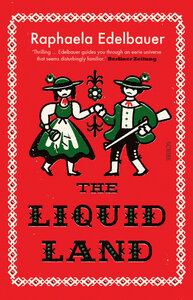

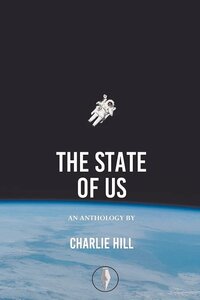

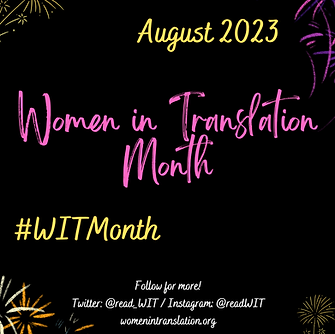
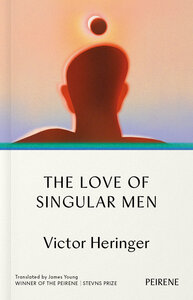

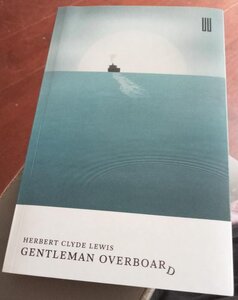




Recent Comments